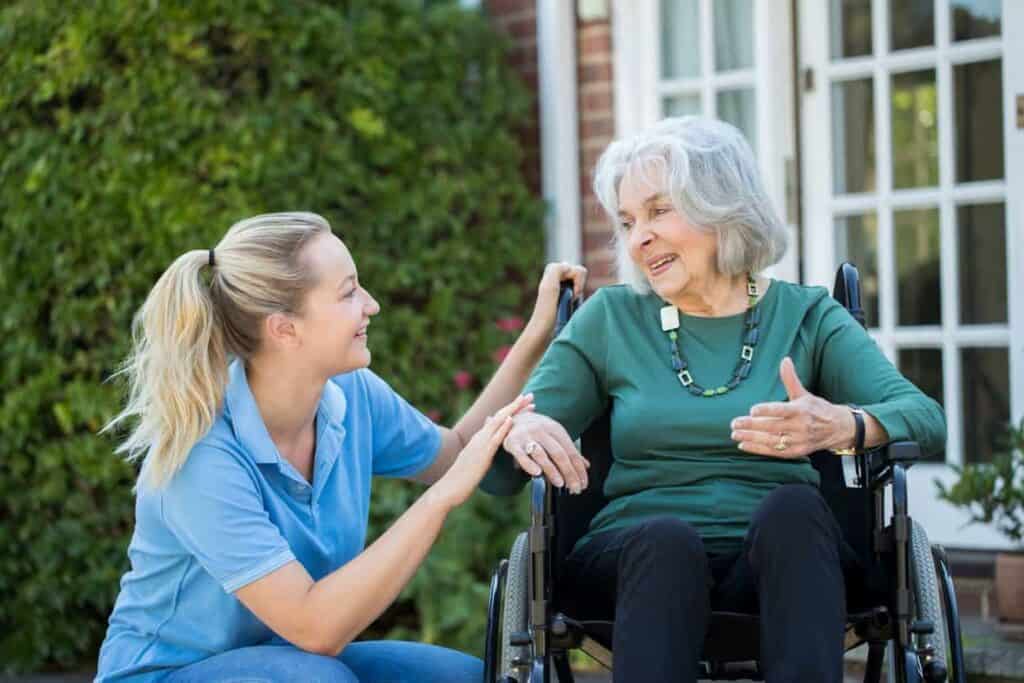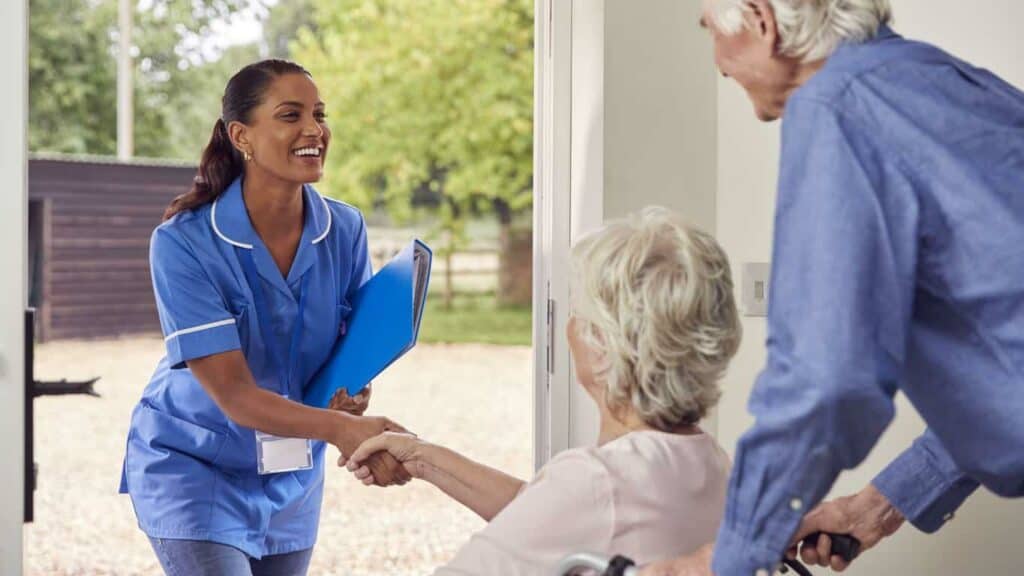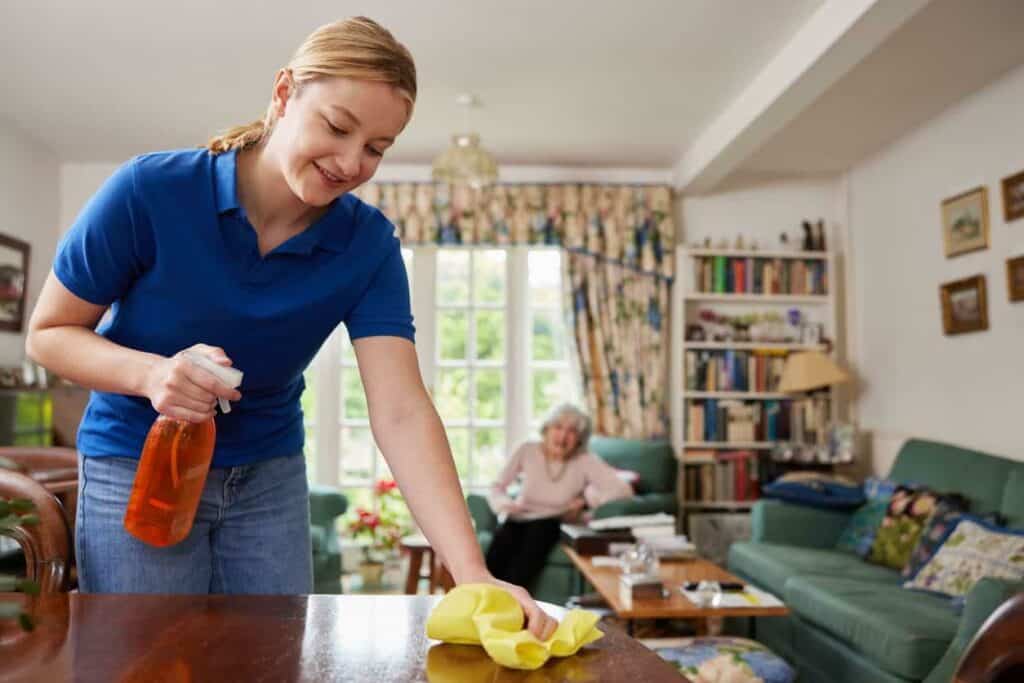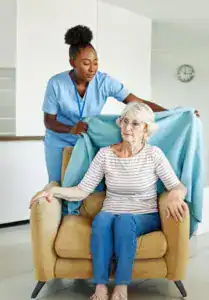
25+ Joyful Indoor Activities for Seniors That Will Transform Their Day
As seasons change in Reno and Carson City, or when mobility becomes a challenge, finding engaging indoor activities for seniors can feel like a difficult

Everyone wants to age gracefully, but have you ever wondered what it really means? As you get older or have a senior loved one, you’ll start thinking of this question more often. Aging is a natural part of life, but it comes with unique challenges — not just for the seniors themselves but for their families as well. One of the most pressing concerns for family caregivers is how to provide the care and support elderly loved ones need while allowing them to maintain their cherished independence.
Nowadays, people are constantly juggling their careers, family, and personal life, and the importance of home care for the elderly has never been more evident. Thankfully, home care agencies, like Amy’s Eden, are there to support struggling family caregivers unable to prioritize their loved one’s care needs due to other obligations.
The process of choosing home care for your elderly loved one can be overwhelming. Read more to learn about what home care is, its benefits, the types of services available, how to choose the right provider, and the steps involved in setting up home care.

Home health care services involve a broad range of medical and non-medical assistance provided to seniors in the comfort of their own homes. This type of care offers numerous benefits, including personalized care, the comfort of familiar surroundings, and a plethora of services to support your loved one’s independence at home. It encompasses assistance with daily activities, companionship, and medication management.
Depending on your needs, there are different types of home healthcare services you can choose from. These may include:

When deciding whether home care is the right choice for your senior loved one, consider these key factors:
Consult with a healthcare professional so they can properly assess your elderly loved one’s health status and medical needs. The assessment will determine the level of care required so they can thrive at home.
Many adult children assume the role of family caregivers for their loved ones for several reasons. Some may want to provide hands-on care, while others might not have the financial resources to pay for the services. Determine if other family members are available to provide care at certain times of the day. Otherwise, hire a part-time or around-the-clock professional assistance.
Understand the financial aspects of home care, including insurance coverage and potential out-of-pocket expenses. If your relative needs long-term care, talk with a senior care advisor to get ideas on how to financially sustain care.
Is your home environment senior-friendly? Consider the home’s suitability for your elderly loved one’s safety and accessibility. It should be supportive of a home health care setting. Modifications may be necessary depending on their needs.

Deciding on the right home health care agency is a vital step in ensuring quality care for your elderly loved one. Reputable agencies hire trained and compassionate caregivers, conduct thorough background checks, and maintain a high standard of care. You’ll need your research skills in this aspect to weigh your options and choose an agency with a solid reputation.
To whittle down your options, here are some questions you can ask potential agencies:
Finding the right agency fit for your elderly loved one is crucial because you’ll build a relationship with their caregiver. Sometimes, you’ll work with them for years. Hence, you’ll need to consider your loved one’s needs, wants, and preferences. For example, they might want a female caregiver instead of a male. Here are other tips:
Always include your loved one in the decision-making process as much as possible. After all, they’re the ones who’ll be receiving the care, so they need to be comfortable and satisfied with the chosen caregiver. Ask what their preferences are and give them options to choose from.
If you hire from an agency, they’ll typically send someone who fits your relative’s preferences. But you still have the option to request another caregiver if your loved one isn’t satisfied or comfortable working with the caregivers. They may want someone with a certain personality.
Head over to Google or social media to read client reviews and talk to families who’ve received care from the agency. What do they have to say? If they can vouch for the high quality of care service, you’re set on the right path.
Communication is a two-way street, and it’s essential when working with a home care agency. Evaluate if they’re attentive and responsive to your questions and concerns. If they are, it’s a good sign you’re about to make a good decision.
Frequently assess the quality of care provided by the agency’s caregiver. You can ask your loved one how their caregiver is doing and performing and whether their needs are met on time. Make adjustments as necessary to ensure your loved one’s continued comfort and safety.

Setting up home care services for loved ones is advantageous for them and for you. You don’t have to worry whether your loved one has eaten or taken their meds if they have a home caregiver. For your loved one, they can receive the necessary care to stay autonomous and self-sufficient.
Setting up home health care for your elderly loved one involves several steps, including:
It starts with your doctor determining the level of care your loved one needs to thrive at home. This assessment will consider their overall health condition, mobility, and other specific medical needs. The evaluation will give you an idea of the type of care services you should get. For instance, if your loved one has diabetes, you must work with a caregiver who has knowledge of nutrition and meal preparation.
Following the assessment, a personalized care plan will then be created. This plan will outline the specific services your loved one needs — it can range from companionship care, home maintenance, and assistance with daily activities to skilled nursing care.
Once your loved one’s needs are identified, a caregiver or nurse will then be carefully selected to match their unique care requirements. These skilled professionals become the primary caregivers, providing essential care to ensure your loved one’s comfort and well-being.

A care coordinator or case manager plays an important role in home health care. These dedicated professionals will serve as the central point of contact for families, offering guidance, reassurance, and support throughout the caregiving journey.
Beyond acting as a liaison between the family and healthcare providers, they also assess the senior’s ongoing needs, including tracking progress, monitoring their health status, and identifying any necessary adjustments to the care plan. Care coordinators ensure the services provided align with your loved ones’ needs.
Care coordinators mainly help with care logistics, as their job is to get the necessary care services, even those that are hard to access, without wasting your time and effort and at no extra cost. They can either be a nurse, social worker, or office staff who can do tasks like scheduling, arranging, and overseeing the care services necessary for your loved one’s recovery or health maintenance.
One of the biggest advantages of home health care is personalization. Care plans are not “one-size-fits-all”; they’re fully customized to match each senior’s unique health needs, mobility, and emotional state. Plus, this individualized approach continues throughout the recovery journey. The doctor conducts regular assessments to modify the care plan to correspond to the senior’s existing needs and circumstances.
The “Can we afford it?” line is a common concern many families have when it comes to financing health care. If you’ve asked the same question, know many financial assistance options are available to help you cover the cost of your loved one’s care.
Understanding your options, including insurance coverage and government programs, can help ease the financial burden on you and your family.
Medicare and Medicaid are federal programs that can help cover some home health care services costs. But, note that their coverage and eligibility criteria differ:

Aside from Medicare and Medicaid, there are other sources of financial assistance seniors and their families can explore:
While caring for an elderly loved one can be rewarding, it can also be very challenging. Family caregivers often have to shoulder the brunt of such a huge responsibility, resulting in caregiver stress and burnout.
If you’re one of those who volunteered to become a caregiver, check out support programs that can help both you and your senior loved one. These programs offer a broad range of resources, information, and a sense of community, providing a much-needed lifeline for caregivers and seniors.

Different types of support programs offer benefits for seniors and caregivers. As the role is physically and mentally demanding, having a community of other caregivers to share your story or hardships with can be uplifting.
Here are some key reminders to help you access and make the most out of support programs:
Choosing home health care is a great way to help your elderly loved ones spend their golden years at the place they feel most comfortable — home. The key to thriving is giving them personalized care in a comfortable, familiar setting.
To make this possible, choose the right agency, involve your loved one in decision-making, and keep an eye on things.
Finally, if you have concerns about the cost, research financial assistance options you can tap into. Government- and local-funded programs like Medicare may help pay for your senior loved one’s care.
Amy’s Eden offers home care services at an affordable cost so your loved one can stay independent in their own home. We have friendly and respectful caregivers you’ll be happy to work with. Find a reliable caregiver or visit our website to start your search.
Get care >

As seasons change in Reno and Carson City, or when mobility becomes a challenge, finding engaging indoor activities for seniors can feel like a difficult
Family Survey Please share your honest feedback to help us improve the care and safety of your loved one.
Professional Senior In-Home Care in Carson City Keep your loved one in the comfort of their cherished home. Amy’s Eden delivers exceptional senior care services

The Best Home Care in Reno, NV The comfort of your home, the quality of Eden. We provide compassionate, professional in-home care services for seniors

Amy's Eden Senior Care © 2023